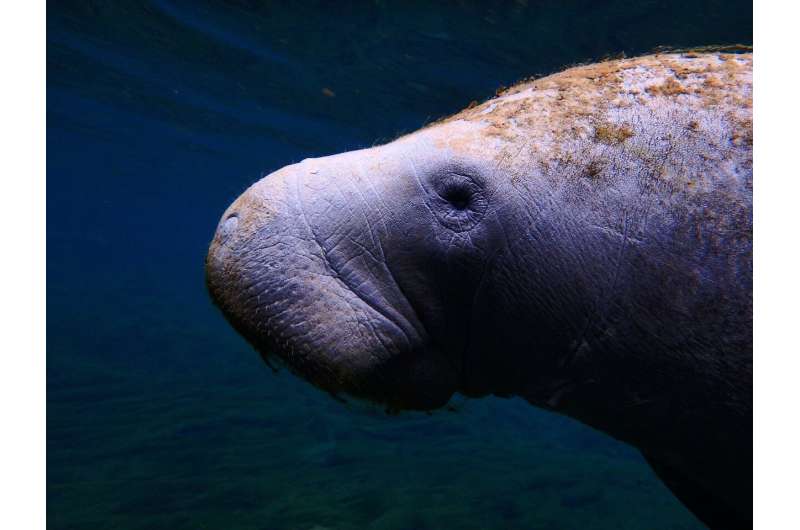Credit: Pixabay/CC0 Public Domain
In a lull before a feared return to disaster, wildlife authorities said Wednesday they are about to receive truckloads of lettuce for feeding starving manatees this winter in the coastal Indian River east of Orlando.
Jon Wallace of the U.S. Fish and Wildlife Service said operations have been beefed up for this year's emergency feeding of manatees, including for logistics, finance and operations and management.
Last winter, state and federal agencies hand-fed more than 200,000 pounds of lettuce to manatees that sought shelter in the warm waters discharged by the Florida Power & Light Co. plant south of Titusville. They anticipate providing significantly more lettuce this winter.
Ron Mezich of the Florida Fish and Wildlife Conservation Commission said lettuce will arrive at the FPL power plant on Thursday, coming from a farm near Belle Glade.
The manatee crisis in the Indian River has resulted from a pollution-caused die-off of aquatic grasses that are a primary part of the animals' diet. Cold weather and water further stresses their health.
"When it starts to get to below 68 degrees some of those animals will start to come in," Mezich said.
Brevard County saw a big jump in manatee deaths last year in December, with a toll of 22 and far more than in any other Florida county. From Nov. 26 through Dec. 6 this year, the cutoff for the latest data, no manatee mortalities have occurred in Brevard.
Titusville temperatures will drop to the mid and low 50s Thursday, Friday, Saturday and Sunday nights before returning to the 60s for overnight lows, according to the National Weather Service.
Temperatures in the Indian River, which is shallow, are likely to take a dip as well with those chilly nights.
A separate campaign to clean and revive Indian River waters and restore meadows of aquatic grasses won't bring significant results for years, experts warn.
Wallace said the annual cost of the starvation crisis is difficult to calculate even as an estimate.
The response has included the emergency feeding, retrieval, examination and disposal of carcasses, rescue of stricken animals and intensive care of emaciated manatees by several private aquarium and zoo organizations.
"It's tough to give a number, even a ballpark," Wallace said. "I would certainly say that we are up in the seven digits as a ballpark."
2022 Orlando Sentinel.
Distributed by Tribune Content Agency, LLC.























